Recent Discussions
-
https://sololevelingmanhwa.me/8 minutes ago
-
 What are we watching next11 minutes ago
What are we watching next11 minutes ago -
 Last watched documentary series or movie?27 minutes ago
Last watched documentary series or movie?27 minutes ago -
 Specific Noona Reccs1 hour ago
Specific Noona Reccs1 hour ago -



Both take a more mature approach to Gay Life.
Both involve HIV/AIDS as a main point.
Going My Home takes place during a short period of time (roughly 72 hours) whereas Love in the Big City spans much longer.
Going My Home is a South Korean short film.
Love in the Big City is a South Korean drama series.
Both involve HIV/AIDS as a main point.
Going My Home takes place during a short period of time (roughly 72 hours) whereas Love in the Big City spans much longer.
Going My Home is a South Korean short film.
Love in the Big City is a South Korean drama series.
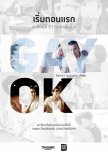

Both take a realistic and serious approach to HIV/AIDS and Gay Life.
Going My Home is a South Korean short film and Gay OK Bangkok is a Thai series.
Going My Home is a South Korean short film and Gay OK Bangkok is a Thai series.

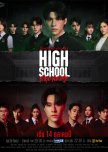
-Both are "bromance" series that share a school setting, fights and some gangs.
-Main leads have a strong connections and great chemistry.
-They have a little sister figure in both series.
-Leads also loses a mother and suffers from poverty.
-Main leads have a strong connections and great chemistry.
-They have a little sister figure in both series.
-Leads also loses a mother and suffers from poverty.

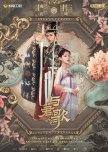
drama with the same leads.
.................................................................................
.................................................................................
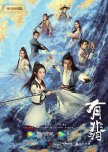
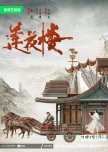
While watching this I started to make a list comparing Legend of Fei's A'Fei/Xie Yun to Di Feisheng/Li Lianhua AS A JOKE and then it got TOO REAL and I had to stop lol. (Although in some ways she's more Fang Duobing than Di Feisheng.)
I can't explain in detail because spoilers, but: dao-wielding rough young woman from outlaw fortress background ventures into jianghu for the first time and encounters a jokey, rude, pretty man who's a bit mysterious and seems not to have any martial arts. Caveat: LoF is not nearly as well made as MLC. It's riddled with bad editing and dropped storylines and low production values, and the writing is nowhere near as thoughtful. It's pretty fun, though.
I can't explain in detail because spoilers, but: dao-wielding rough young woman from outlaw fortress background ventures into jianghu for the first time and encounters a jokey, rude, pretty man who's a bit mysterious and seems not to have any martial arts. Caveat: LoF is not nearly as well made as MLC. It's riddled with bad editing and dropped storylines and low production values, and the writing is nowhere near as thoughtful. It's pretty fun, though.
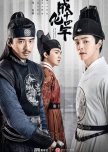

Both shows have a trio untangling a complex mystery over several smaller cases. The Sleuth of Ming Dynasty focuses more on a specific pair, and the dynamics are very different from Mysterious Lotus Casebook, but you'll still find relationships that evolve into unshakable devotion, moral ambiguity, and characters willing to put themselves in great peril for the truth (and each other). You may also appreciate that the main characters are competent adults* with significant skills.
The two main characters are Sui Zhou and Tang Fan. Sui Zhou is an excellent fighter with a traumatic past. He's laconic and mostly no-nonsense and frequently exasperated. His love language is cooking and he'd tolerate Li Lianhua in a kitchen for less than half a second. Tang Fan can't fight at all but has a brilliant mind, and unfortunately makes Fang Duobing at his poutiest/silliest look like an ascetic monk. The third major character, Wang Zhi, is a schemer with Imperial resources (he would absolutely eat Shan Gudao and Jiao Liqiao for lunch).
Important note: None of these people start off the show already 90% dead. So if you're looking for that specific vibe, it's not here.
The fighting scenes in Sleuth are very well choreographed, though they're pretty well-grounded and not as fanciful as typical wuxia combat. Even qinggong/lightness skills are limited to a couple of blink-and-you'll-miss-it moments. This could be disappointing coming off of MLC, but if you pay attention the fighting is really very well done, just not flashy. Despite the style differences, I found both shows' fight scenes to be worth watching and focused on what the characters/actors are doing. This is in contrast to many other shows where it's more about explosions, poses, CGI, and camera cuts.
Differences: Sleuth has a more consistent cast of side characters who are allowed to develop more than MLC's side characters. Although it's far from anything that actually happened, it's set in a specific year of China's history, in real places, and many characters share names and titles with real people (including the third person in the trio). So it doesn't have that timeless wuxia feeling that MLC does. And Sleuth really is a dangai (based on a danmei novel in which the two main characters are genuinely a couple, but rewritten to be acceptable under current rules) whereas MLC is not.
I followed up MLC with The Blood of Youth which I liked, but it was such a jarring contrast. Despite having some characters and arcs that on paper seemed very MLC-like, the show's mood and storytelling are just in a different realm from MLC. Sleuth was the next show I watched, and despite its obvious differences, for me there's just something similar about the vibes. So I recommend giving it a try.
*Let's not get into their supposed ages; they make even less sense than MLC's ages and timelines do
The two main characters are Sui Zhou and Tang Fan. Sui Zhou is an excellent fighter with a traumatic past. He's laconic and mostly no-nonsense and frequently exasperated. His love language is cooking and he'd tolerate Li Lianhua in a kitchen for less than half a second. Tang Fan can't fight at all but has a brilliant mind, and unfortunately makes Fang Duobing at his poutiest/silliest look like an ascetic monk. The third major character, Wang Zhi, is a schemer with Imperial resources (he would absolutely eat Shan Gudao and Jiao Liqiao for lunch).
Important note: None of these people start off the show already 90% dead. So if you're looking for that specific vibe, it's not here.
The fighting scenes in Sleuth are very well choreographed, though they're pretty well-grounded and not as fanciful as typical wuxia combat. Even qinggong/lightness skills are limited to a couple of blink-and-you'll-miss-it moments. This could be disappointing coming off of MLC, but if you pay attention the fighting is really very well done, just not flashy. Despite the style differences, I found both shows' fight scenes to be worth watching and focused on what the characters/actors are doing. This is in contrast to many other shows where it's more about explosions, poses, CGI, and camera cuts.
Differences: Sleuth has a more consistent cast of side characters who are allowed to develop more than MLC's side characters. Although it's far from anything that actually happened, it's set in a specific year of China's history, in real places, and many characters share names and titles with real people (including the third person in the trio). So it doesn't have that timeless wuxia feeling that MLC does. And Sleuth really is a dangai (based on a danmei novel in which the two main characters are genuinely a couple, but rewritten to be acceptable under current rules) whereas MLC is not.
I followed up MLC with The Blood of Youth which I liked, but it was such a jarring contrast. Despite having some characters and arcs that on paper seemed very MLC-like, the show's mood and storytelling are just in a different realm from MLC. Sleuth was the next show I watched, and despite its obvious differences, for me there's just something similar about the vibes. So I recommend giving it a try.
*Let's not get into their supposed ages; they make even less sense than MLC's ages and timelines do
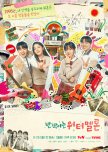

The One movie and Twinkling Watermelon both story about deaf people . Both of main focus is deafness


Both random travel show.
RJonW with its 12 cast members focus on their friendship and the fun games,
while RT shows more the locations they visited and their culture.
RJonW with its 12 cast members focus on their friendship and the fun games,
while RT shows more the locations they visited and their culture.

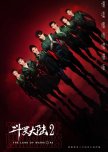
Ini adalah seri yang sempurna dalam segala hal. itu ditulis dengan baik dan dibawakan oleh para aktor. Saya serahkan kepada Anda untuk menemukan misteri seri ini. Menikmati. Saya menyukainya. ???


Both chinese republican era dramas with Li Jiu Lin.
Other similarities:
- memory loss
- misunderstandings
- annoying SFL
- SML wants to kill ML all the time
Other similarities:
- memory loss
- misunderstandings
- annoying SFL
- SML wants to kill ML all the time
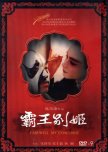
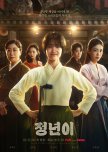
Jeong Nyeon: The Star is Born talks about yeoseong gukgeuk an artform in South Korea that incorporates pansori and stage performances that features all-women casts and some of them needs to portray a male role. Farewell My Concubine it talks about the Peking opera and some men portray dan (female) roles.
Both stories have implied same sex romance between the characters: Hyerang and Okgyeong, Jeong Nyeon and Juran for Jeong Nyeon: The Star is Born. Cheng Die Yi and Duan Xiao Lu on Farewell My Concubine
Both stories have implied same sex romance between the characters: Hyerang and Okgyeong, Jeong Nyeon and Juran for Jeong Nyeon: The Star is Born. Cheng Die Yi and Duan Xiao Lu on Farewell My Concubine

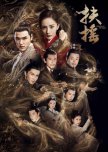
In both dramas, the male and female leads work together to solve a major conspiracy.
In both dramas, there is a childhood connection between the male and female leads.
Both have great fight scenes with quite good visual effects.
The male lead is talented, intelligent, calm (suspicious).
The female lead is stubborn and unyielding.
In both dramas, there is a childhood connection between the male and female leads.
Both have great fight scenes with quite good visual effects.
The male lead is talented, intelligent, calm (suspicious).
The female lead is stubborn and unyielding.

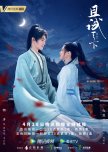
In both dramas, the male lead loves the female lead. The female lead does not reciprocate at first.
The main characters are good at solving problems together.
In both dramas, the female lead is scorned by society for not adhering to social conventions and is generally seen as rude and immoral.
The male lead is a high-ranking, respected official.
In both dramas, the male lead would do anything for the female lead, even risking his life.
The main characters are good at solving problems together.
In both dramas, the female lead is scorned by society for not adhering to social conventions and is generally seen as rude and immoral.
The male lead is a high-ranking, respected official.
In both dramas, the male lead would do anything for the female lead, even risking his life.

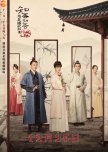
Both dramas depict the struggles women face.
In both dramas, we see strong female leads.
In both dramas, the female lead initially considers marrying a weak man, but then meets a strong male lead.
In both dramas, we see strong female leads.
In both dramas, the female lead initially considers marrying a weak man, but then meets a strong male lead.


The plot of the two dramas is very different. But they also have similar themes.
1. In both dramas, the female lead has suffered a lot.
2. The male lead is a military officer, a government official, and handsome ?.
3. A strong, intelligent female lead.
4. Throughout the drama, the male lead helps the female lead.
1. In both dramas, the female lead has suffered a lot.
2. The male lead is a military officer, a government official, and handsome ?.
3. A strong, intelligent female lead.
4. Throughout the drama, the male lead helps the female lead.


